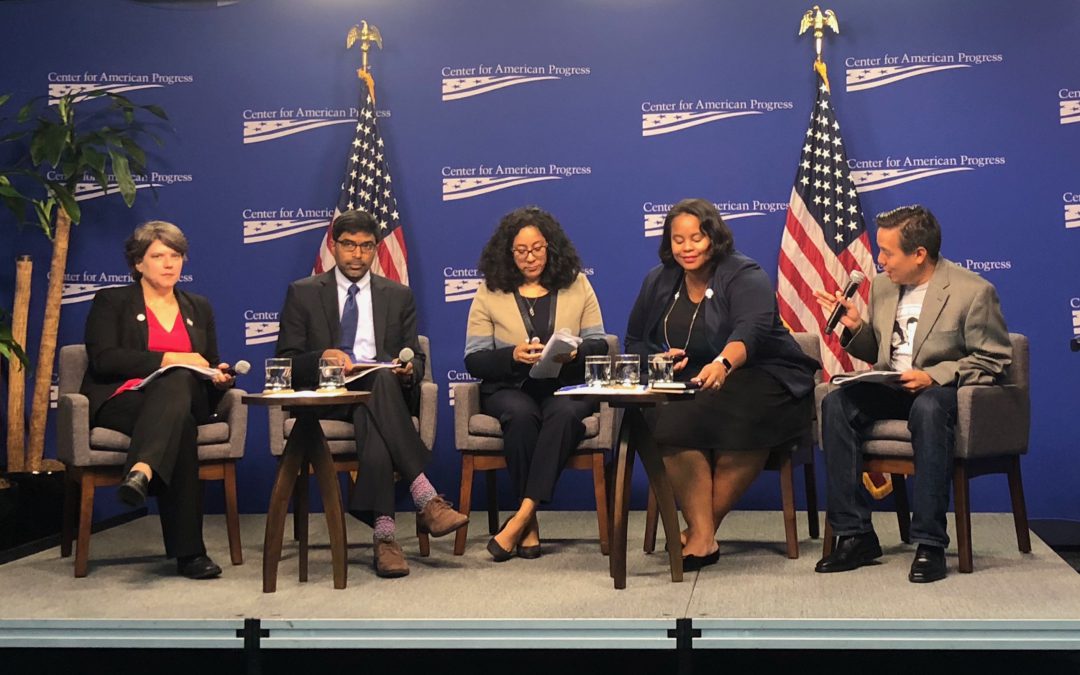WASHINGTON – President Donald Trump’s judicial nominations will hurt the legitimacy of the federal courts for years as judges continue to be mainly white and male while the population becomes more diverse, legal experts said Thursday.
At an event hosted by the Center for American Progress, the experts said the lack of diversity among judicial nominees in terms of race, gender, sexual orientation, religious affiliation and professional background is a systemic problem that has gotten worse under the Trump administration. A new CAP study of sitting judges shows 73% are male and 80% are white, a substantial increase from the Obama administration. According to data from the Congressional Research Service, President Barack Obama appointed high numbers of “nontraditional judges,” including women, African-Americans, Hispanics and Asian-Americans.
“We must challenge the narrative that anyone who doesn’t come from a straight white male background should be viewed with skepticism,” said Sharon McGowan, legal director at Lambda Legal.
During Obama’s second term, less than 50% of active federal judges were white men for the first time in American history, according to the Congressional Research Service. In under two years, President Donald Trump has reversed that trend. He has so far successfully appointed 152 individuals to judgeships in the federal circuit and district courts, of which 60% are white males. He has also filled two vacancies on the Supreme Court with conservative white males.
The nomination process has been hijacked by conservatives espousing the need for a “judicial philosophy” while pushing through candidates with poor records on issues such as race and immigration, McGowan said.
“We will have a Trump judiciary for generations.”
Failing to include historically underrepresented groups and minorities in judicial nominations creates problems of political and social accountability, said Andrea Senteno, a regional counsel of the Mexican American Legal Defense and Educational Fund.
“Take the Fifth Circuit [Court of Appeals], which represents lots of Latinos. There are no Latino judges on the bench,” said Senteno, decrying partisans who blocked suitable appointees from confirmation.
Danielle Holley-Walker, dean of the law school at Howard University, a historically black college, said to change the composition of the judiciary, there needs to be a push to encourage more minorities to go to law school. She cited initiatives like pipeline programs and educating young aspirants on the prerequisites of judicial careers.
“I speak to a lot of students who are discouraged by the injustice of the system and don’t want to go through it,” Holley-Walker said. “But it’s better to work through the system and within it for change.”


